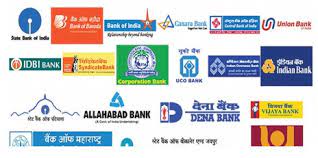Advertisements
People who have chosen to specialize in finance have a number of career options, and banking is one of them. People who have chosen to specialize in finance have a number of career options, and banking is one of them. Investment banking, retail banking, and commercial banking are the three main categories of banking.
Commercial banks are located in buildings where their clients visit to use ATMs and other banker window services. Due to recent improvements in internet technology, most banks now let customers do most of their business online. Now, anyone can transfer money, deposit money, or pay bills online.
This article will discuss employment opportunities in commercial banks so that you can decide if this is the right career path for you.
Related: What Are The Best Paying Jobs In Commercial Banks?
What is a Commercial Bank?
A commercial bank is a type of financial institution that carries out the tasks of taking public deposits and disbursing loans for investments to make a profit.
Lending and borrowing are a commercial bank’s two main qualities. The bank takes money from people and gives it to businesses so that interest can be made.
Types of Commercial Banks
Commercial banks can be classified into three different categories.
Advertisements
- Private bank:
Private Banks are a type of commercial bank where the majority of the share capital is owned by private persons and companies. All private banks are listed as limited liability businesses. Examples of such banks include Industrial Credit and Investment Corporation of India (ICICI) Bank, Yes Bank, and Housing Development Financing Corporation (HDFC) Bank.
- Public bank:
This category of a bank is nationalized, and the government owns a sizable portion of it. For instance, Bank of Baroda, Punjab National Bank, Dena Bank, Corporation Bank, and State Bank of India (SBI)
- Foreign bank:
Some banking firms were founded in other nations and have branches there. Examples of such banks are Standard & Poor’s, Hong Kong and Shanghai Banking Corporation (HSBC), American Express Bank, and Citibank.
Is Commercial Bank a good career path?
Commercial banking jobs are easy to find, well-paid, full of benefits, and offer a great balance between work and life. Any person who is willing to work can get an excellent job at a commercial bank, regardless of their personality, skill set, or level of education.
Commercial banks play a crucial role in the economy. In addition to providing a service that customers need, they also help the market grow and stay liquid. A career in commercial banking is something you should think about if you’re seeking high-paying employment. Even at the starting level, the pay is competitive, and it continues to rise as you move up in rank.
Working for a commercial bank has certain drawbacks, though, including the potential for downsizing during economic turbulence or a recession, so it might not be the best option for people looking for excellent job security. Many people find commercial banking to be a terrific field with lots of prospects. Yet, it only makes sense to be sure it is a good fit for you, your abilities, and your long-term objectives before getting started.
Related: Is Major Banks A Good Career Path?
There are many opportunities in commercial banking to match your personality, regardless of whether you like client-facing or back-end employment.
Jobs available in Commercial Banks
1. Bank Teller – $64,607
A bank teller is in charge of handling tasks such as processing withdrawals and deposits, cashing checks, issuing savings bonds, and collecting loan payments. They guarantee excellent customer service and transaction efficiency.
2. Trust officer – $77,440
A trust officer is a banking professional who advises on trust and estate matters. A trust administrator is another name for it. They will be in charge of informing clients, organizations, advisers, and other bank staff about the regulations and available choices for trust and estate matters. They supervise trust fund administration and ensure that it complies with applicable federal and state laws.
3. Credit analyst – $77,440
Credit analysts look at a number of things when deciding whether or not to approve a customer’s credit application. These things include the purpose of the application, the customer’s payment history, and the customer’s creditworthiness. Their job is to look at a client’s finances and decide whether or not they should be given a credit limit. This lowers the risk of bad debt.
4. Loan officer – $180,553
Loan officers are employed by banks and other financial organizations to conduct application screenings, assist borrowers in obtaining loans that are appropriate for their needs and financial situation, and explain the conditions of each loan to prospective borrowers.
5. Mortgage Banker – $86,698
Bank loan officers who specialize in mortgage products are known as mortgage bankers. Most of the time, their job is to help clients choose the right mortgage loan products and help them through the application process.
6. Financial sales agent – $117,461
Financial services sales representatives give advice and offer guidance to both individuals and corporations on a wide range of banking, securities, insurance, and related services.
7. Financial manager – $134,180
Financial managers develop plans and strategies, manage investments, and create financial reports for the long-term financial advantage of a company or organization. They cooperate with the management group
8. Branch manager – $65,782
A bank branch will be under the branch manager’s supervision and management. They will be in charge of branch revenue growth, employee hiring, and financial reporting. Typically, branch managers are in charge of all aspects of that branch office, including supervising the approval of loans and lines of credit, marketing, fostering relationships in the community to draw in business, assisting with customer relations, and making sure the branch promptly achieves its goals and objectives.
9. Programmers – $163,979
Programmers create, modify, integrate, and test computer code for communications software, operating systems software, and software for data processing.
10. Financial Consultant – $73824
A financial consultant is someone who offers knowledgeable guidance on taxes, investments, and financial planning to both individuals and businesses. Financial advisors help their customers in earning and save money. They can aid in the growth of businesses by making crucial financial choices that will boost revenues. They can also aid in debt payments, purchase life insurance, and retirement savings.
FAQs on Commercial banking
1. What are the primary duties of Commercial Banks?
The main objectives of commercial banks are to provide financial services to individuals and businesses, both of which help the maintenance of economic stability and economic progress. Hence, we may state that the primary goal of commercial banks is the creation of credit.
2. How does a Commercial bank make money?
Commercial banks generate income by making loans, including mortgages, car loans, business loans, and personal loans, and charging interest on those loans. Customer deposits to banks provide the funds required to finance these loans.
3. Do commercial Banks pay well?
The pay in commercial banks will vary based on your position. The average annual salary for commercial bank workers according to PayScale, the typical commercial banker in the United States, was $88,506 per year as of July 2022. The typical annual wage for a commercial banker in the United States is $104,981, according to Comparably, a different source.
A management role can allow you to make even more money.
Conclusion
One of the broadest job options in the financial services sector is offered by the commercial banking industry. Whether you are good with numbers and people or want to break into a great organization, commercial banking might be a fantastic option.
Because they offer credit and loans to consumers and businesses, commercial banks play a crucial role in the American economy. They give individuals a safe place to keep cash, earn interest, and make purchases.






